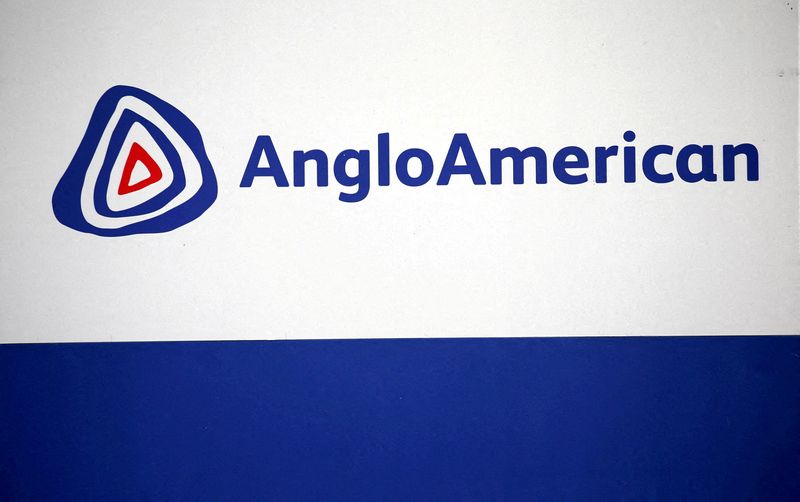By Melanie Burton and Scott Murdoch
MELBOURNE (Reuters) - BHP (ASX:BHP) Group's options for its pursuit of rival miner Anglo American (JO:AGLJ) include sweetening its $42.7 billion buyout offer, making a hostile bid or walking away for now as it approaches a May 22 deadline to lodge a binding offer.
As BHP weighs its next move, CEO Mike Henry and his team have been making the case for the mega-deal on the sidelines of an investor conference in Miami and elsewhere to its investors, a large proportion of whom also hold shares in Anglo.
"At this stage I think it is up to BHP to try to convince enough of Anglo's institutional shareholders over the coming week that it's worthwhile pressuring their board to engage with BHP, with a potentially even higher offer on the table should this occur," Morningstar analyst Jon Mills said.
Anglo's board has already knocked back two all-share proposals from BHP as inadequate and too difficult to execute and on Tuesday unveiled plans for a break-up to focus on energy transition metal copper while spinning out or selling its less profitable coal, nickel, diamond and platinum businesses.
That plan met with a mildly supportive response from Anglo investors, who said it provided a strategy but was short on details.
With the exception of Anglo keeping its South African iron ore assets and selling its Australian coal mines, it was also similar to BHP's own plans for its takeover target.
"It would seem to me that they (Anglo) need to demonstrate why the bird in the hand is not better than two in the bush," Anglo investor Todd Warren at Tribeca Investment Partners said.
A top 25 Anglo investor said that there was nothing compelling about the company's restructuring proposal, which resulted in shares closing 3.2% lower at 26.195 pounds on Tuesday, below BHP's latest offer of about 27.53 pounds per share.
"Anglo management need to push for a bump. An additional 10%. And then wait for Glencore (LON:GLEN)," said the investor who declined to be identified due to the sensitivity of the matter.
Swiss commodities group Glencore is studying a possible rival bid for Anglo, Reuters reported this month.
"We retain our view that interloper risk remains high," JPMorgan (NYSE:JPM) analyst Lyndon Fagan wrote in a note published on Tuesday before Anglo's restructure was announced.
Rio Tinto (ASX:RIO) CEO Jakob Stausholm said on Tuesday that his company was not afraid of M&A, but it had strong organic growth options.
BHP, Anglo, Glencore and Rio Tinto declined to comment on Wednesday.
BHP'S OPTIONS
Under UK rules, BHP has one week left to make a binding bid for Anglo or it will be forced to walk away for at least six months.
To make its case for the buyout, BHP has pointed to its successful spin-off of South32, the demerger of its petroleum business to Woodside Energy in 2022 and coal asset sales as evidence that it is a safer pair of hands, according to slides from Henry's presentation in Miami.
It has also flagged execution risk after Anglo's management did not follow through on a 2016 vision of a "new Anglo" that would simplify the miner's structure into a core portfolio of diamonds, platinum group metals and copper.
The option of going hostile and taking its offer directly to Anglo shareholders is not new to BHP, which did so unsuccessfully in 2007 with a $140 billion all-share bid for rival Rio Tinto. It also made a $39 billion hostile bid for Canada's Potash Corp in 2010 that was blocked by the Canadian government.
But two sources familiar with the matter said BHP will not take that approach because it needs Anglo's management on board to clear regulatory hurdles in South Africa and to help it unlock the most value for shareholders. BHP also needs an agreed due diligence period to examine Anglo's books, they added.
BHP has also told investors it will not drop its requirement for Anglo to demerge South African businesses Kumba Iron Ore and Anglo American Platinum as a condition of the deal. Making a binding bid at the price already rejected by Anglo would force BHP to buy the entire company, which it is not prepared to do, said a source with knowledge of the matter.
That narrows BHP's options for a revised bid to improving the share ratio, adding some cash, or a mix of the two.
It could also decide to walk away, just as Xstrata, later bought by Glencore, did from a proposed $96 billion merger of equals that was rejected by Anglo's board in 2009.
BHP has told investors that Anglo is not a make-or-break deal and it may need to take time to reassess, a prospect increasingly being priced in with BHP shares on the rise, one investor said.

BHP shares were up 2.6% on Wednesday.
BHP could come back later once Anglo does more restructuring, though it would need to be at a higher price, the investor added.